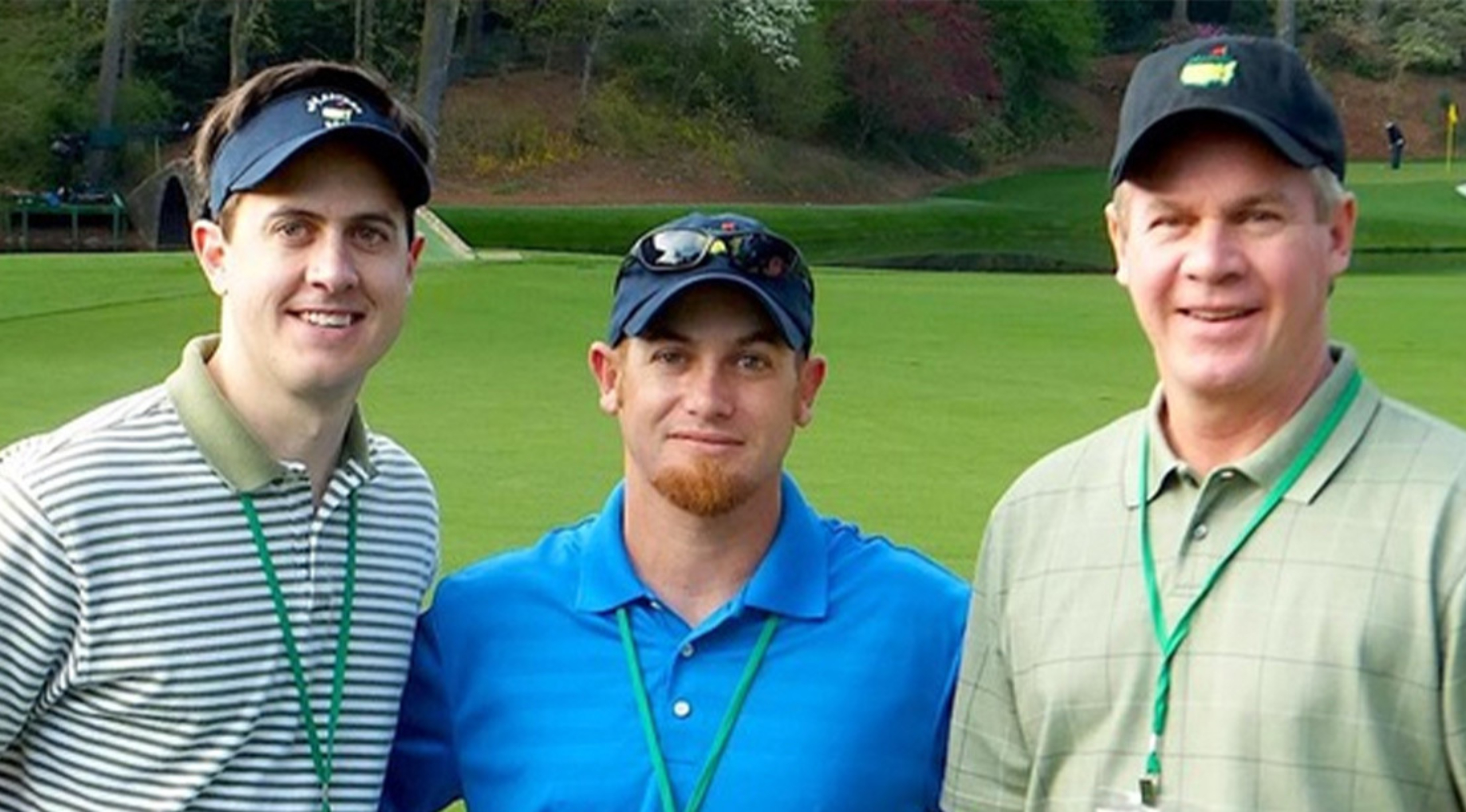Overcoming Cancer With an Exceptional Team at Your Back
One patient’s journey of cancer diagnosis and recovery in the midst of the pandemic
Reviewed by: Alex Haynes, MD, MPH, FACS, and Bill Holland (patient)
Written by: Lauryn Feil

Bill Holland entered 2020 with big plans to retire, hit the golf course, take time to relax, travel, and enjoy this new phase of his life. But as for most of us, his plans for 2020 were put on hold, rescheduled, or canceled altogether due to the ongoing COVID-19 pandemic. While Bill still retired from his corporate marketing job in May, he was forced to quarantine, which meant temporarily setting aside the golf clubs and pausing all travel plans with hopes of rescheduling at a safer time. 2020 became an even more challenging year for Bill when he received a surprising diagnosis of stage IIIA melanoma in July.
“I had a little itch in the middle of my back for a few months, and I brought it up when I saw my primary care doctor during my annual physical,” explains Bill. “After an in-person exam, my doctor recommended I make an appointment to see my dermatologist. I’ve had basal cell cancers in the past, so when my dermatologist performed a biopsy, I was expecting a similar diagnosis this time. Melanoma hadn’t even crossed my mind.”
A few days later, Bill got a call from his dermatologist, who told Bill he had been diagnosed with melanoma. Bill was in shock. “I know everyone says this, but I wasn’t expecting it to happen to me,” says Bill. “Fortunately, I have always been healthy, and at age 68, ready to start the next phase of my life, it was a tough concept for me to grasp. It didn’t really sink in how serious this was until my doctor was explaining the stage of cancer I had.”

Bill was referred to board-certified and fellowship-trained surgical oncologist Alex Haynes, MD, MPH, FACS, who serves as the Medical Director for UT Health Austin’s Surgical Oncology Clinic. Prior to joining UT Health Austin and the Dell Medical School, Dr. Haynes served as an associate professor of surgery at the Massachusetts General Hospital and Harvard Medical School Division of Surgical Oncology, working as a key member of the melanoma multidisciplinary program. Dr. Haynes had previously completed surgical training at the Massachusetts General Hospital as well as a fellowship in complex general surgical oncology at The University of Texas MD Anderson Cancer Center.
“I had the opportunity to meet with Dr. Haynes a few weeks before my scheduled surgery, and right away I knew he was a good guy and I felt like I was in good hands,” says Bill. “He was very thorough in his explanation of what I could expect, answered every question I had, and even anticipated what I might ask next.”
For the safety of patients and clinicians, telehealth is primarily utilized for appointments that do not require physical examination or testing at UT Health Austin while COVID-19 precautions remain high. However, patients are able to request an in-person appointment if preferred, and measures are in place to ensure safety during in-person encounters. For something as serious as melanoma, having the ability to meet with Dr. Haynes in person prior to having surgery was extremely important to Bill.
On the day of Bill’s scheduled surgery in August 2020, he recalls being grateful that each clinician involved in his care took the time to introduce themselves, explain their role in his care, and what he could expect from them. “This was my first time going under general anesthesia, and I was very happy with how professional, friendly, and informative everyone was,” says Bill. “I knew exactly what was going on every step of the way, and for me, as someone who was going through this for the first time, especially during an already stressful global pandemic, that was crucial.”
Dr. Haynes performed a wide excision of the melanoma to remove the cancer. A sentinel lymph node biopsy was also performed, identifying a lymph node metastasis. The affected lymph nodes were removed, and Bill was discharged from the hospital the same day and recovered wonderfully from surgery. He received follow-up care and additional scans from MD Anderson that Dr. Haynes was also able to help coordinate. The additional scans showed that Bill’s cancer was successfully removed and had not spread to other organs.
“I’ve worked in healthcare marketing for a number of years,” says Bill. “I’ve probably been in over 100 hospitals, thankfully never as a patient, and exposed to a lot of their philosophies, including how they address patient care and how they train their employees, so I thought I knew what to expect. But the care I received here [at UT Health Austin and Dell Seton Medical Center] from the moment I walked in the door to the time I woke up in recovery was just excellent and exceeded my expectations. Everyone was so empathetic and extremely helpful. I would absolutely recommend receiving care here to anyone who may need it.”
Now that Bill is a couple months into recovery from his surgery, he is eager to return to the golf course to work on improving his game, which he jokingly says really needs it. And once the pandemic slows, he’s looking forward to spending time traveling and enjoying the retired life. He feels fortunate to have received care before the cancer advanced to a more advanced stage and he’s grateful for the team that helped him through it every step of the way. 2020 has been a tough year, but overcoming cancer, although unexpected, has become Bill’s greatest feat.
For more information about UT Health Austin’s Surgical Oncology Clinic, visit here.